How Boundary-Setting in Children Helped Me Unlearn Emotional Enmeshment
If you get upset when a child says no to affection—you were never offering love. You were demanding compliance. That ends with us.
Teaching Consent & Boundaries to Children Starts at Home
The Birthday That Taught Me What I Had Truly Passed Down
The most honest test of what we’ve taught children is how they act when it’s inconvenient for us.
One birthday, I went all out for my niece. I bought her expensive gifts, carefully chosen and wrapped with love. She opened them, excited and joyful. I felt warm watching her—until I said, “Aunty wants a hug.”
She paused, looked at me, and said calmly, “No.”
I froze for a second. My face shifted—just a little. I exaggerated a playful pout and said, “Aunty’s sad…”
And in that moment, I forgot.
I forgot that I taught her:
“Your feelings are yours. My feelings are mine. You are not responsible for managing my emotions.”
And it wasn’t a casual teaching—it was deliberate. I had badgered my family about this. Especially my mother.
I’d told her—over and over—about the cost.
Not just the visible harm, but the quiet, covert ways children are trained to override their instincts. I explained that even with family, especially with family, we don’t tell children to hug people they don’t want to. Not for the sake of politeness. Not to avoid awkwardness. Not ever.
Because I remember what it felt like to be told to hug someone I didn’t feel safe with. I remember being punished for discomfort I couldn’t yet name.
And I wasn’t going to pass that on.
Why Children Saying “No” Is a Sign of Emotional Safety—Not Rejection
“When a child says ‘no’ and feels safe enough to mean it, that’s the beginning of liberation.”
Teaching consent means teaching children that love does not require self-abandonment. I glanced over at my mother, who began to step in—her voice soft but immediate:
“No, but aunty just wants—”
I knew what she was about to say. I knew that tone. That instinct to smooth over the discomfort, to help the child be polite, to help the adult feel better. And I realized, again, that this is exactly why I had taught my niece to stand her ground. Because I was raised in a system that rewarded me for managing adult emotions.
To soothe discomfort.
To avoid conflict.
To be palatable and pleasing and to call that love.
I didn’t know that care could exist without self-erasure.
That you could be close to someone and still say no.
That you could be generous without offering up your peace as the proof.
My niece wasn’t disrespecting me. She was showing me what emotional safety looks like—something I had to fight to learn as an adult.
And in that moment, I wasn’t hurt. I was proud.
Because her “no” wasn’t just a boundary—it was a sign that the world I wanted to raise her in was starting to exist, even if just in our small shared space.
I Was Raised to Manage Adult Emotions—Not to Express My Own
“Some of us were praised for emotional maturity when what we really had was emotional suppression.”
So why does it matter to me that children learn to say no to hugs?
Why is it essential that they understand their body is theirs, and no one—family included—is entitled to it?
Because my voice was taken.
Not once. Not metaphorically.
It was taken—many times over. Silenced. Mocked. Dismissed.
And still, I spoke.
I spoke before I could walk. My family still tells that story with wonder—how I used words before I had my balance. They remember it as cute. I remember it as early evidence of a calling.
Now, decades later, I see what that moment really meant.
It was a signal. A through-line. A kind of ancestral muscle memory.
Because I never stopped speaking.
I became a public speaker. Built platforms with over 8 million people across continents—YouTube, Instagram, Substack. Not because I chased visibility. But because something in my voice carries—something people hear and feel, even if they don’t know why.
It’s in the blood.
My great-grandfather was a president.
My grandmother—a griot, a speaker, a force.
And me? I teach.
I teach children boundaries, not just as a tool—but as protection. As inheritance.
Every child who learns to say “no” with confidence and still feels safe in that refusal is unlearning the silence I was forced to carry.
They are doing with ease what I had to claw my way back to.
My Grandmother Was the First Person I Didn’t Perform For
“When children dont absorb adult emotions, they become free and so do we.”
The only adult whose emotions I didn’t manage was my grandmother. She was formidable—a woman no one challenged, especially not men. They called her the one who could outmatch any man in a debate, in the streets, in politics, in principle. She wasn’t afraid of authority. She was authority.
She served as the President’s advisor—Sir Dawda Jawara of The Gambia. She traveled across the country with him, shaping policy, advocating for women’s rights, and carrying the weight of strategy on her back with elegance and force. A politician. A campaigner. A strategist. A matriarch.
And yet—she was the one person in my life I could push back against. With her, I tested my voice. I disagreed. I challenged. Not because I didn’t respect her, but because her presence made space for that.
Children do that, you know. Even lion cubs roar at their mothers—not out of rebellion, but to test the safety of their place in the pride.
To check: Can I exist here, fully? Even when I push? Even when I say no?
With my grandmother, the answer was yes.
She showed me that you could be gentle with children and ruthless with power. That you could be big, commanding, highly visible—and still be a woman who held space for others.
But outside of her, I learned something else: I was rewarded for not upsetting adults. For swallowing discomfort. For becoming fluent in other people’s moods and forgetting how to name my own.
I wasn’t taught to express my feelings. I was taught to manage other people’s. And I carried that into adulthood, until the children I now raise—and love—began handing it back to me.
I didn’t understand it then, but my grandmother was giving me something most children never get: A space where power wasn’t used to silence me, but to see me.
What she modeled, I now multiply.
She taught me you could be powerful without demanding submission.
That you could raise children who speak, and still be respected.
That’s the legacy I’m living into. And now—through every child I teach to say no, to set boundaries, to honor their own emotional compass—
I’m building more of those spaces.
Why I Teach Children to Refuse Physical Affection Without Guilt
“Boundaries aren't rejection—they're a sign that a child feels safe enough to choose.”
Consent starts early, and it includes family.
I teach children to set boundaries.
To own their feelings.
To understand that adult emotions are not theirs to carry.
This kind of emotional clarity is especially delicate when teaching boundaries in multicultural families, where expectations around affection and obedience are often shaped by generational trauma, migration, and culturally specific definitions of “respect.”
Black kids. White kids. Biracial kids. Arab kids.
I say the same thing to their parents—quietly in hallways, directly at pick-up:
“You need to heal. Because your child shouldn’t be carrying your fragility.”
This is particularly urgent in the context of Black parenting and consent, where survival has historically required compliance, and emotional autonomy is too often misread as disrespect. Teaching bodily autonomy here isn’t just an emotional tool—it’s a political act of protection.
It’s not always received well.
I’ve lost friendships.
But I’ve kept my integrity.
And I’ve protected children.
These kids? They’re different.
They don’t contort themselves to comfort adults.
They don’t absorb guilt, shame, or silence to keep the peace.
They stay in their own feelings—and that is powerful to witness.
And I’ll be honest—
I struggle to maintain friendships with people who can’t name their own boundaries.
Because if someone can’t recognize their emotional limits, they won’t recognize mine.
That’s a recipe for emotional exhaustion—especially for someone like me, who has spent a lifetime unlearning emotional enmeshment.

How Emotionally Independent Children Helped Me Heal My Inner Child
“I teach children to keep their voices, because I know what it costs to lose yours.”
What I had to recover, they get to protect.
Here’s what I know now:
If I’m upset, that’s mine.
If you’re upset because I’m upset—that’s yours.
We’re not enmeshed.
We are two people.
Each allowed to feel.
Each allowed to set limits.
Each responsible for our own emotional landscape.
That’s not disconnection.
It’s respect.
It’s autonomy.
It’s refusing to outsource your emotional labor—especially to children.
What these emotionally independent children are teaching me isn’t just about parenting.
It’s about repair.
It’s about the parts of myself that were silenced—and the clarity that comes when I watch a child refuse to perform the same labor I once did without question.
Breaking Generational Patterns of Emotional Caretaking and Self-Abandonment
We’re not raising caretakers. We’re raising whole humans. And in that process—I’m becoming one too
This redefinition of care is also part of how I practice neurodivergent parenting strategies—centering emotional clarity, interdependence, and sensory boundaries, not guilt-based compliance. I used to think parenting—or even community care—meant absorbing everyone’s pain. Now I know:
Care is modeling boundaries.
Softness is making room for feelings—not fixing them.
Love doesn’t require self-erasure.
We’re not raising caretakers.
We’re raising whole humans.
And in that process—I’m becoming one too.
We’re Raising Emotionally Whole Children—Not Lifelong Caretakers
Whose emotions are you still managing?
What would change if you put that energy back into yourself?
Who told you love meant over-functioning?
Freedom begins the moment we stop performing emotional labor we were never meant to carry.
If this resonates, here are more essays on breaking cycles, holding boundaries, and reclaiming your voice:
Who is Lovette Jallow?
Lovette Jallow is one of Scandinavia’s most influential voices on systemic racism, intersectional justice, and human rights. A nine-time award-winning author, keynote speaker, lecturer, and humanitarian, she specializes in neurodiversity, workplace inclusion, and structural policy reform.
As one of the few Black, queer, autistic, ADHD, and Muslim women working at the intersection of human rights, systemic accountability, and corporate transformation, Lovette brings an unmatched perspective rooted in both lived experience and professional expertise. Her work bridges the gap between theory, research, and action, helping organizations move beyond performative diversity efforts toward sustainable, structural change.
She has worked across Sweden, The Gambia, Libya, and Lebanon, tackling institutional racism, legal discrimination, and refugee protection. Her expertise has been sought by global publications like The New York Times, on high-profile legal cases, and by international humanitarian organizations, where she has provided critical insights on racial justice, policy reform, and equity-driven leadership.
As the founder of Action for Humanity, Lovette collaborates with businesses, policymakers, and institutions to develop equity-centered solutions that are practical, measurable, and embedded in long-term strategy.
Follow Lovette Jallow – DEIB Strategist, Keynote Speaker & Humanitarian:
Website: lovettejallow.com
LinkedIn: linkedin.com/in/lovettejallow
Instagram: instagram.com/lovettejallow
YouTube: youtube.com/@jallowlovette
Twitter/X: twitter.com/lovettejallow
Action for Humanity Instagram: instagram.com/action4humanity_se


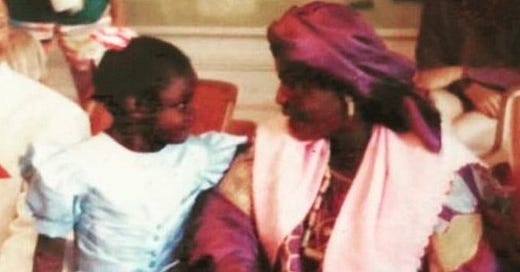


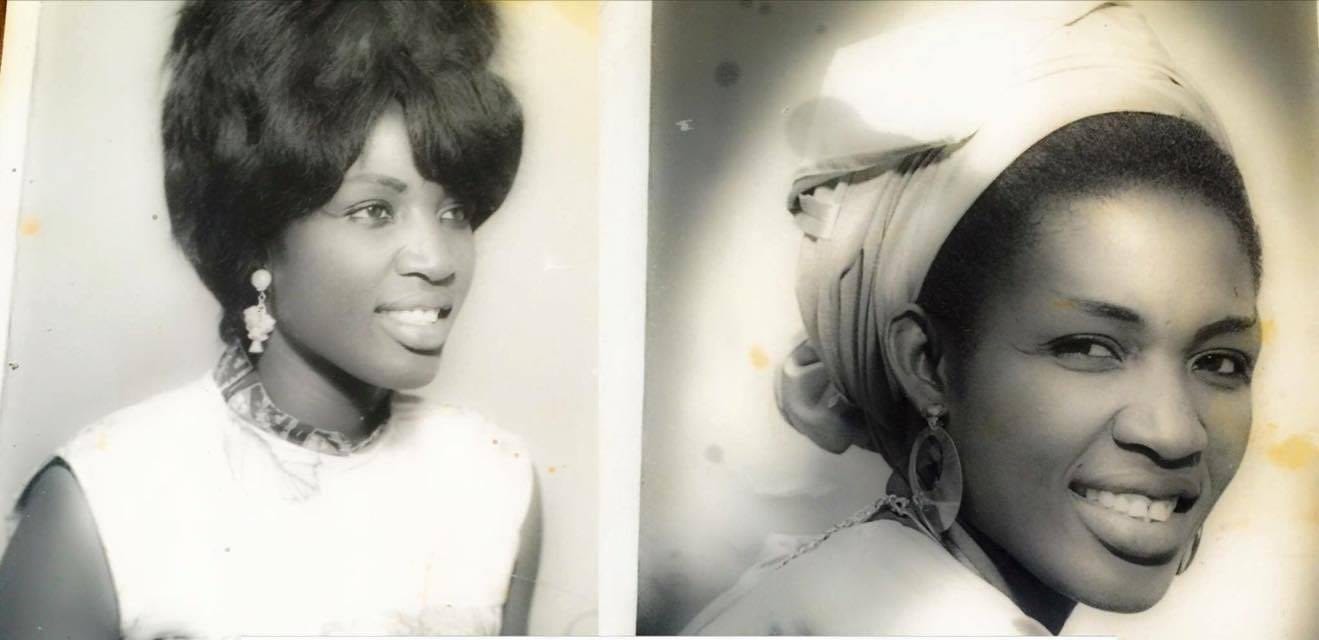
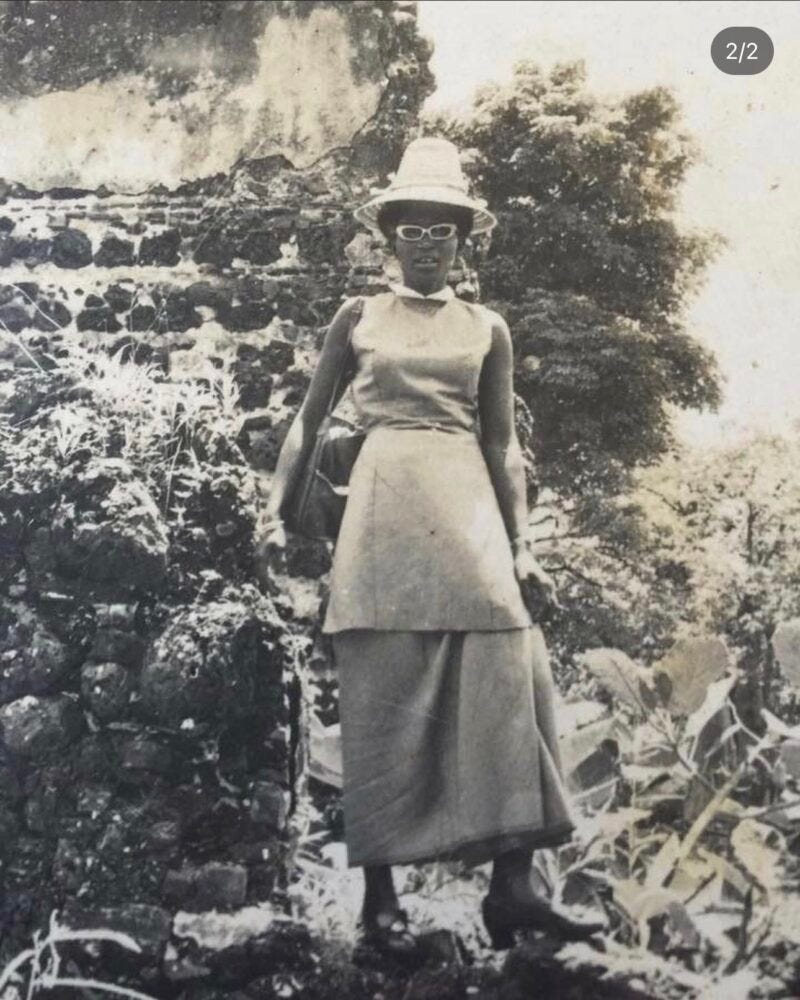

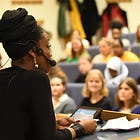
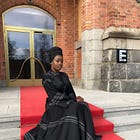


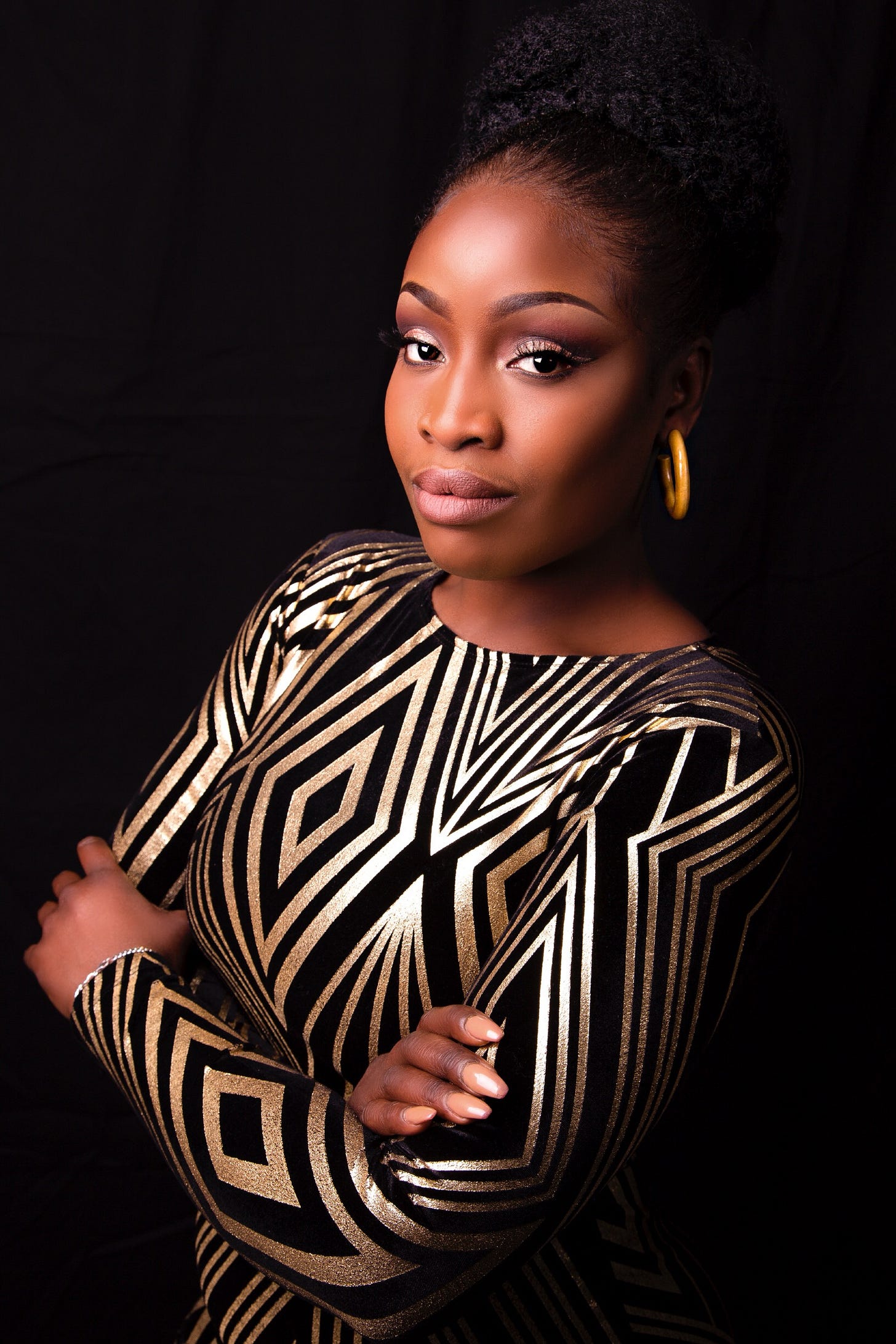
I did everything I could to promote bodily autonomy with many of these supportive strategies. My son was still exploited at age 12. Relearning everything. Thank you for the depth of heart you bring here. It’s like a wellspring.
Man. Your post struck a deep chord on so many levels. I've been the kid told to make space for affection I felt uncomfortable with, been the adult admonishing kids to do the same, and have learned later that this very practice paved the way for predators to groom and attack children in a community I was part of. Such an important piece. Thanks for writing this.